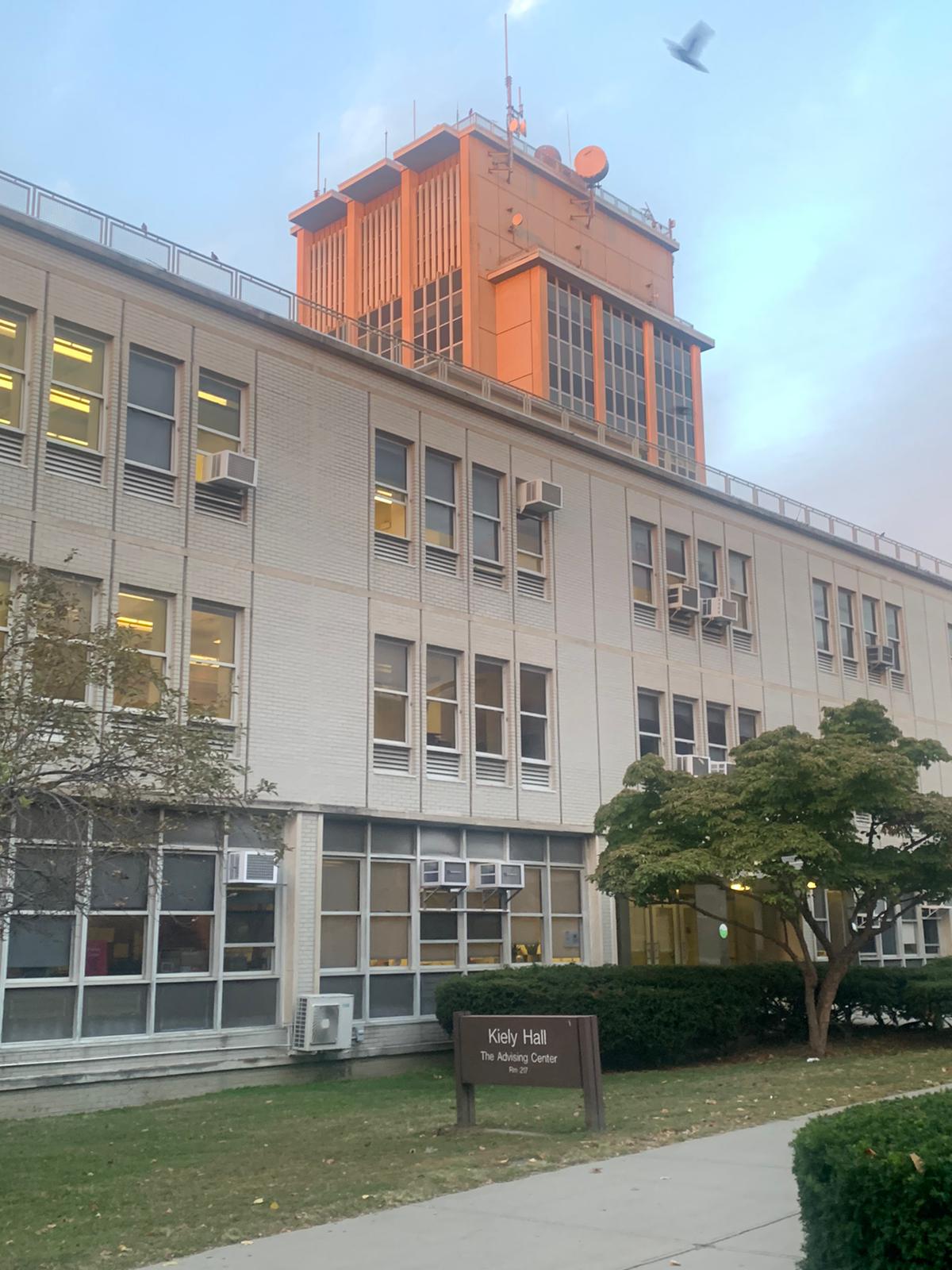On Thursday, Sept. 12th, the Queens College Academic Senate convened in room 170 of Kiely Hall for its first meeting of the academic year.
The Academic Senate is a 60-member governing body with 40 full-time faculty and 20 student representatives elected each spring. The Senate sets policies on admissions, student retention, curriculum, degree requirements, and dean nominations. At its latest meeting, Patricia Price, QC interim provost and senior vice president for academic affairs, addressed the college’s accreditation process, a faculty satisfaction survey, and a transfer student program.
In her address to the Senate, Price outlined key projects from the Office of the Provost, including the Middle States re-accreditation, Academic Program Review, COACHE faculty satisfaction survey, and Better Neighbors: Pathways for Partnership
Price provided a status update on QC’s accreditation process. “As you know, Queens College is an accredited institution of higher education, which means that we can receive federal financial aid under Title IV, and the credits and the degrees that you students earn here are valuable,” she said.
QC is undergoing re-accreditation by the Middle States Commission on Higher Education (MSCHE), an institutional accrediting agency recognized by the U.S. Secretary of Education. This multi-year process, conducted every eight years, requires QC to assess its academic standards of excellence against the MSCHE criteria, submit a comprehensive self-study report, and host evaluations from MSCHE peer reviewers.
“Sort of the signature thing that the college produces as we go into our psyches by our peer evaluators, is a self study where we look at how, how well we meet the standards for accreditation,” Price said.
The self-study began in Feb. 2024 with the creation of seven working groups responsible for preparing the report for the MSCHE peer evaluator team visit in Spring 2026. Each group, comprising 10 members of the QC community, focuses on one of the seven MSCHE Standards of Accreditation. They analyze evidence to assess QC’s compliance, assemble an Evidence Inventory, and draft a chapter of the report.
The Provost moved on to the Collaboration on Academic Careers in Higher Education (COACHE) survey. Price described it as a “workplace satisfaction survey that is administered by faculty members.” The survey collects feedback on faculty experiences and concerns at the college.
“It gives us a very detailed snapshot of how the faculty feel on a number of issues and provides [the] administration with a set of action items that we can carry forward to improve this as it works,” Price said.
While discussing new support networks, Price stressed the importance of fostering a more supportive and inclusive environment for all students, especially transfers.
Price presented Better Neighbors: Pathways for Partnership. This program is led by the Provost’s office to enhance the student transfer experience, focused on ensuring the transferability of credits.
At the Senate meeting, Price said she was told:
“So I think you need to do a better job as an institution, making this a welcoming place for our transfer students, and ensuring that the credits that you bring with you from your home institution or your community college to the extent possible, transfer to Queens College, and not just as unspecified electives, but as credits in a major, and then this place supports all of our students….Those schools are Queensborough Community College and LaGuardia Community College. They provide the majority of our transfer students. One of the things that’s important to know is that we usually have about 60% of our students transfers at this point in time, about 35% of our students are transfers. That number has dropped precipitously. And so one of the questions I have asked as Provost is, where can we be better with our transfers?”
Next, the Nomination Committee reported on new appointments and renewals for various Senate committees. According to the Senate’s website, there are vacancies on all Standing, Special, and College Committees, except for the Executive Committee, the Committee on Honors and Awards, and the Subcommittee on Honorary Degrees.
Kevin Ferguson, Chair of the Academic Senate, urged members to “consider running for one of our standing committees,” particularly emphasizing the need for student representatives on the Nomination Committee’s Arts and Humanities and Education divisions.
For more information on the projects discussed by Provost Price, visit the Provost’s Office website at https://www.qc.cuny.edu/provost/. Key updates from the October Academic Senate meeting will be featured in the next issue of The Knight News.











